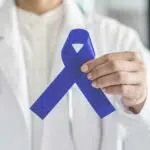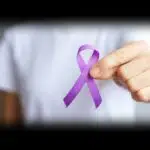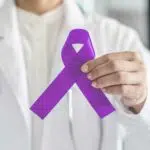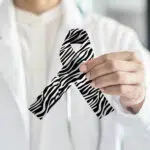Counseling Awareness Month is celebrated in April every year. It’s a month-long observance of raising awareness and promoting mental health to people of all ages. It also highlights the importance of counseling professionals — from mental health counselors, school and college counselors, substance abuse counselors, to career counselors. It’s the time when their contributions, not only to the healthcare sector but also to society in general, are honored. This celebration also eradicates the stigma of seeking help for mental illnesses. These professionals are here to help, and it doesn’t make anyone less of a person to ask for guidance.
History of Counseling Awareness Month
Counseling sessions didn’t start in a private room with patients on the couch, and counselors on the chair. Its origin traces back to when people lived in smaller groups — tribes — when they would gather together and share their experiences, dreams, and problems. As human civilization developed and religion dominated many regions in the world, priests became the standard person who would listen and give advice.
The scientific approach to counseling didn’t occur until the late 19th century. German neurologist Sigmund Freud developed psychoanalysis in 1890. He introduced the structure of people telling their problems to a psychoanalyst who interprets their subconscious. Freud emphasized that there’s a part of the human psyche that people are not aware of, hence needing a third-party individual to evaluate them.
In the 1940s, counseling psychology became an applied specialty in the American Psychological Association. However, it wasn’t until the end of the Second World War that counseling took off in the U.S. In the 1950s, several psychologists and psychiatrists developed different techniques and theories that we have come to know as the ‘school of therapy.’ They developed the study on how individuals view the world they live in and how they cope with it — an integral part of modern-day counseling. These schools were named psychoanalytical, behaviorist, and humanistic.
Today, counseling has established itself as one of the most sought-after sectors in healthcare but has also been an in-demand service many people avail. As modern times have evolved, more people are recognizing the importance of self-care through counseling.
Counseling Awareness Month timeline
German neurologist Sigmund Freud introduces psychoanalysis and counseling.
Counseling psychology becomes an applied specialty in the American Psychological Association (A.P.A.).
The A.P.A. legitimizes counseling and guidance.
Puncky Heppner spearheads the integration of science and practice in doctoral training.
Counseling Awareness Month FAQs
What are the four stages of counseling?
The stages of counseling are identifying the need for counseling, preparation, a proper counseling session, and follow-up.
What’s the most important part of counseling?
The initial part of counseling, as it sets the tone for the entire session. It allows the patient and counselor to get to know each other and establish a rapport.
Are counseling sessions kept confidential?
Counseling sessions are confidential between the counselor and patient and will not be shared with anyone unless given written permission.
How to Observe Counseling Awareness Month
Join seminars and symposiums
Attend seminars and symposiums this Counseling Awareness Month. Listen to these licensed counselors and mental healthcare professionals as they talk about the importance of mental health and why counseling is a recommended option for healing.
Visit your counselor
Raising awareness for a larger population often starts with you. Visit your trusted counselor for self-check and regular evaluation, ensuring that you’re mentally sound and emotionally stable.
Encourage your friends
One of the ways to lessen the stigma behind counseling is to enlighten your friends on how it works. Everyone has a form of emotional baggage they want to be relieved from, it is everyone’s social responsibility to illuminate the benefits of counseling not just for one person but for everyone around them.
5 Important Facts About Counseling And Counselors
You don’t have to have a mental illness
Counselors specialize in a lot of issues: from relationships, and careers, to everyday dilemmas.
Counselors won’t put you on medication
Licensed counselors provide counseling services without medical prescriptions.
Counselors help you explore choices
Counseling is a two-way process to help evaluate your life and offer you options to choose from.
Several factors contribute to mental illness
Mental illness can come from traumatic life events, physical illness, or genes.
Connection to substance abuse
According to the University of Southern California, 50.5% who use drugs develop mental illnesses.
Why Counseling Awareness Month is Important
It honors licensed counselors
With the high rates of suicide and self-harm attempts due to mental illnesses and depression, the roles of counselors, psychologists, and psychiatrists could not be more needed. This month is the time to celebrate and honor them, as well as give clarity to their profession for people to have a better understanding of how their services work.
It lessens the stigma
One of the main reasons why some people are skeptical about booking a counseling appointment is their fear of judgment. Counseling Awareness Month is dedicated to eradicating that stigma and ensuring that people who seek counseling assistance are safe and protected.
Self-care is paramount
It’s time to promote that seeking help is a form of self-love. There’s nothing to be ashamed of.
Counseling Awareness Month dates
| Year | Date | Day |
|---|---|---|
| 2026 | April 1 | Wednesday |
| 2027 | April 1 | Thursday |
| 2028 | April 1 | Saturday |
| 2029 | April 1 | Sunday |
| 2030 | April 1 | Monday |



















































































































































